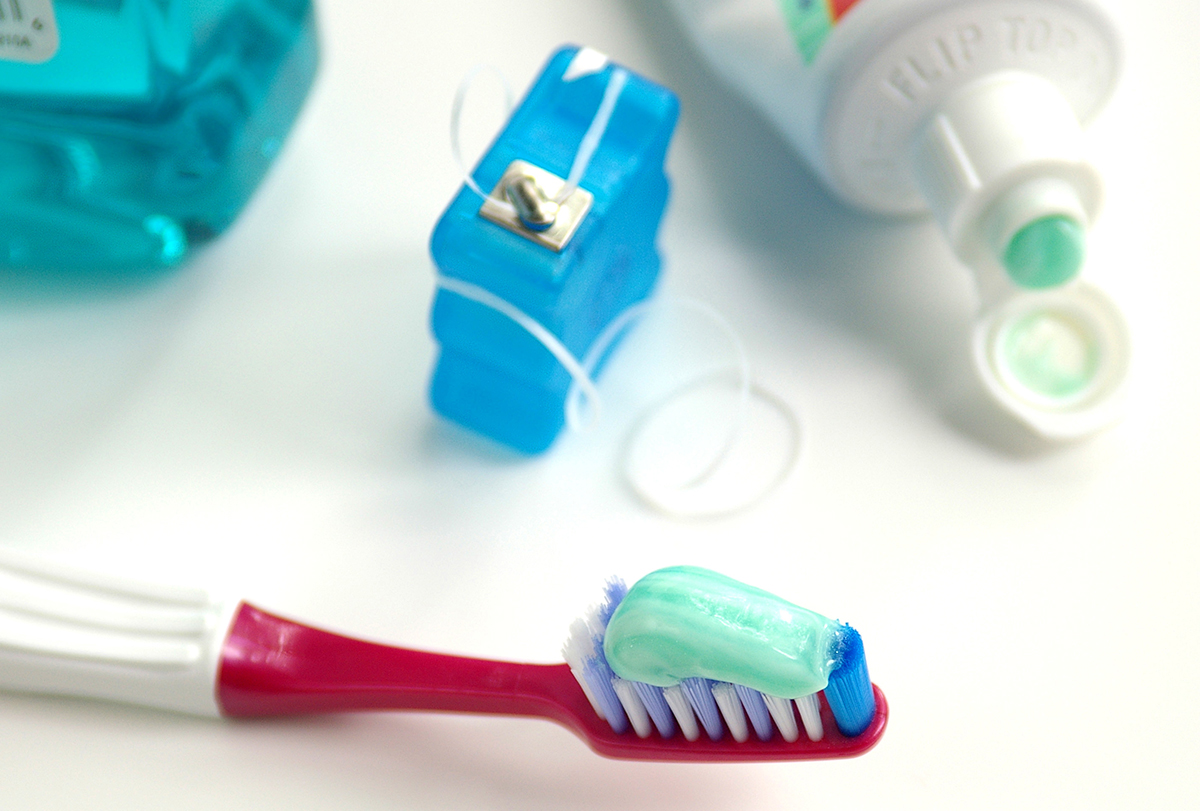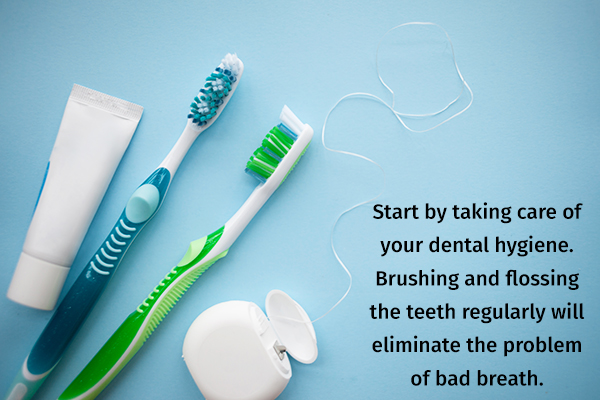In this article:
Around 30% of the population will suffer from bad breath, or halitosis, at some point in time. (1) While the isolated occurrence of bad breath may be the result of eating pungent foods and has no significance in terms of general health, persistent bad breath may stem from an underlying medical problem and requires attention.

Thus, if bad breath becomes a daily problem despite stringent oral hygiene, you must get a dental checkup and observe the recommended measures to deal with it. If left unattended, halitosis may become a dental health issue, apart from the impact it may have on social interaction.
A number of factors may cause bad breath, and despite the common misconception that brushing the teeth is the cure for bad breath, oral hygienists point to many other factors that may be the root cause of the condition and require treatment accordingly.
Causes of Bad Breath
Here are some common causes of halitosis.
1. Bacteria and VSCs
The real culprits of bad breath are the bacteria that live in the mouth and feed on food remnants to release foul-smelling volatile sulfur compounds (VSCs). If you have smelled a rotten egg, you will recognize the smell of sulfur and instinctively find it repulsive.
2. The food you eat

The food you consume tends to have some sort of smell in it. For instance, having meals with garlic, onions, or exotic spices can stink up your breath.
When garlic is crushed, it releases a compound called allicin, which is responsible for its characteristic pungent odor. (2) Although allicin has many medical benefits, it does have the disadvantage of being a major cause of bad breath. Moreover, some beverages and drinks such as coffee can leave a lasting odor.
While brushing and flossing the teeth soon after eating such smelly foods can reduce the intensity of bad breath, it may not go away completely. Some food particles may escape the regular oral hygiene measures and stick around in the mouth, thus providing sustenance for sulfur-producing bacteria for a further 2 days.
Sadly, the price to pay for the delicious taste of a dish rich in garlic is the risk of bad breath. Perhaps getting your partner to share the dish is a way to resolve the situation.
Although brushing and flossing are the traditionally preferred methods of combating halitosis, the process misses out on the tongue. Bacteria thrive in places such as small crevices and grooves. The back of the tongue provides the perfect terrain for bacteria to thrive and grow.
Oral hygienists have proposed the use of a tongue scraper, but as bacteria tend to concentrate in areas far to the back of the tongue, it would be difficult to attend to these areas without gagging. (3)
A more practical solution is the use of mouthwash with an antibacterial property. Be cautious when using mouthwash that contains alcohol as the presence of alcohol may induce a dry mouth condition, which can cause bad breath. (4)
Safe-to-swallow tablets may be a better way to combat bad breath as they stimulate the production of saliva and neutralize the odor of bacteria.
3. Tobacco compounds

Tobacco products also affect your breath. Apart from damaging the lungs, they destroy your oral health as well. Consumption of tobacco is among the top reasons behind bad breath. (5)
Smoking reduces the amount of saliva in the mouth, and saliva is crucial to efficient oral hygiene. (6) Saliva contains antibacterial compounds and enzymes critical for fighting the malodorous bacteria in the mouth. (7) It washes down food debris and keeps your mouth moist.
Lack of saliva, on the other hand, leads to the accumulation of more food particles in the mouth, which invites unchecked growth of bacteria around the gums and teeth. This gradually results in the formation of biofilm called plaque, which comprises bacteria and other impurities in the mouth. Plaque bacteria give off an unpleasant odor in the mouth. (8)
Regular brushing is an effective way of physically removing plaque, and flossing will also assist in this regard. Antibacterial mouthwashes can also play a role in reducing the buildup of plaque. (9)
4. Additional causes
In addition to the above-mentioned factors, the following are additional health problems that can cause halitosis:
- Medications, infections, and allergies all can lead to unpleasant mouth odors.
- People suffering from diabetes can suffer from a condition called ketoacidosis, which results in an unpleasant mouth odor but can also prove life-threatening. (10)
- Taking vitamin supplements in large doses may also result in bad breath.
- Dentures and braces require additional attention to avoid the buildup of bacteria and the consequential presence of unpleasant odor.
Treatment for Bad Breath (Halitosis)

The most efficient treatment of halitosis is good oral hygiene. Bad breath is a warning that bacteria is building up in the mouth, and if not addressed, this can lead to gum and tooth decay.
Most of the individuals who let the problem grow suffer from more serious consequences, such as permanent bad breath and oral infections. Thus, it is extremely important that you take the necessary measures to treat bad breath when you first notice it.
Here’s what you can do:
- Start by taking care of your dental hygiene. Brushing and flossing the teeth regularly will eliminate the problem in most instances or at least minimize it to a great extent.
- If you have braces or dentures, see your dentist regularly. Ask for proper cleaning of the braces. Clean your dentures thoroughly every night.
- People who smoke should seriously consider quitting.
- Another important factor to help your breath is the production of saliva, which can be stimulated by chewing sugarless gums and sugar-free candies.
ALSO READ: Treatment for Bad Breath (Halitosis), Explained by an ENT
Final Word
Under normal conditions, regular and efficient brushing of the teeth with the added protection of flossing and the use of antibacterial mouthwash will keep bad breath away.
A simple test to check on the freshness of your breath is to lick the inside of your wrist and allow the saliva to dry and then smell if there are any bad odors present.
People with halitophobia obsess about bad breath, but following a responsible oral hygiene program will ensure you can avoid the stress of bad breath.
- Was this article helpful?
- YES, THANKS!NOT REALLY


